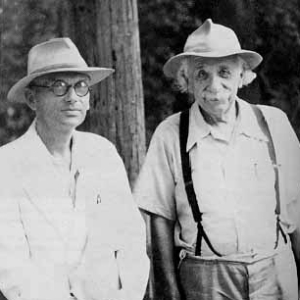
 |
CISC-204*Logic for Computer ScientistsWinter 2013 |
 |
"Upon this first, and in one sense this sole, rule of reason, that in order to learn you must desire to learn, and in so desiring not be satisfied with what you already incline to think, there follows one corollary which itself deserves to be inscribed upon every wall of the city of philosophy: Do not block the way of inquiry." Charles S. Peirce | |
| Internal Links | Announcements | |
| Personnel | ||
| Course Information | ||
| Schedule | ||
| Course Plan and Record | ||
| Practice Problems | ||
| Recommended Readings | ||
| Sample Tests | ||
| Academic Integrity in CISC 204 | ||
Announcements
| Date | Subject | Text |
Return to top
Personnel
| Instructor |
Dr. Robin W. Dawes |
 |
| Goodwin
537 |
||
| dawes AT cs
DOT queensu
DOT ca |
||
| http://sites.cs.queensu.ca/dawes/ |
||
| 533-6061 (but
e-mail is a much
better idea) |
||
| Office Hours:
24/7, by appointment |
| TAs |
Name |
Email |
Office
Hours |
Picture |
| Kathrin Tyryshkin | tyryshki AT cs DOT queensu DOT ca | |||
| Adrian Muresan | adrian DOT muresan AT queensu DOT ca | |||
| Quan Zheng | quan AT cs DOT queensu DOT ca | |||
Return to top
Course Information
| Calendar
Description |
Elements of mathematical logic with computing applications. Formal proof systems for propositional and predicate logic. Interpretations, validity and satisfiability. Introduction to soundness, completeness and decidability. |
| Text |
Logic in Computer Science: Modelling and reasoning about systems, Second Edition, Huth & Ryan, 2004, Cambridge University Press |
| Syllabus |
From the
text: Chapter 1,
Chapter 2, parts of Chapters 3, 4, and 5 From other sources: enrichment material as appropriate |
| Marking
Scheme |
Your final grade is based on five in-class tests. There are no
assignments and no final examination. A record
of marks will be kept in Moodle. Your four best test marks will each be worth 22.5% of your final grade. Your lowest test mark will be worth 10% of your final grade. There will be no make-up tests for missed tests. If you miss a test and can demonstrate sufficient extenuating circumstances I will create a modified marking scheme for you. Family get-togethers, birthdays and other social activities are not considered extenuating circumstances. Students with special needs are responsible for contacting the instructor at least a week before each test. Please see the Queen's Disability Services page for students for more information. |
Return to top
Schedule
| Class
Schedule |
Monday 4:30
- 5:20 Wednesday 3:30 - 4:20 Friday 2:30 - 3:20 |
All
class meetings are in Walter Light 205 |
|
| Test Schedule |
Date |
Material |
Solutions |
| Test 1 |
February 1, 2013 | ||
| Test 2 |
February 15, 2013 | ||
| Test 3 |
March 8, 2013 | ||
| Test 4 |
March 22, 2013 | ||
| Test 5 |
April 5, 2013 | ||
Return to top
Course Plan and Record
| Week 1 |
Monday January 7 Plan: Introduction Slide Show |
Wednesday January 9 Plan: Propositional Logic Propositions |
Friday January 11 Plan: Natural Deduction First Rules of Natural Deduction |
| Week 2 |
Monday January 14 Plan: Rules |
Wednesday January 16 Plan: More Rules |
Friday January 18 Plan: Even More Rules The Rest of the Rules of Natural Deduction |
| Week 3 |
Monday January
21 Plan: Propositions as a Formal Language |
Wednesday January 23 Plan: Soundness and Completeness |
Friday January 25 Plan: Soundness and Completeness Notes for the week |
| Week 4 |
Monday January 28 Plan: Soundness and Completeness Notes for today are included in the posted notes for January 25 |
Wednesday January 30 Plan: Review |
Friday February 1 Plan: TEST 1 |
| Week 5 |
Monday February 4 Plan: Conjunctive Normal Form |
Wednesday February 6 Plan: CNF |
Friday February 8 Plan: Beginning Predicate Calculus Class cancelled due to weather |
| Week 6 |
Monday February 11 Plan: Predicate Calculus Notes on CNF and Beginning Predicate Calculus |
Wednesday February 13 Plan: |
Friday February 15 Plan: TEST 2 Solutions |
| Reading Week | |||
| Week 7 |
Monday February 25 Plan: New Rules Notes on Predicate Calculus |
Wednesday February 27 Plan: |
Friday March 1 Plan: Semantics of Predicate Calculus Notes on Semantics of Predicate Calculus |
| Week 8 |
Monday March 4 Plan: |
Wednesday March 6 Plan: |
Friday March 8 Plan: TEST 3 |
| Week 9 |
Monday March 11 Plan: |
Wednesday March 13 Plan: |
Friday March 15 Plan: |
| Week 10 |
Monday March 18 Plan: |
Wednesday March 20 Plan: |
Friday March 22 Plan: TEST 4 |
| Week 11 |
Monday March 25 Plan: |
Wednesday March 27 Plan: |
Friday March 29 Plan: Good Friday |
| Week 12 |
Monday April 1 Plan: Fuzzy Sets |
Wednesday April 3 Plan: Fuzzy Logic Complete Notes on Fuzzy Sets and Fuzzy Logic |
Friday April 5 Plan: TEST 5 |
Return to top
Practice Problems
| Exercise
Set |
Exercises |
|
1.1 |
1: (a) (d) (j) 2: (d) |
| 1.2 | 1: (a) (e) (m) (s) 2: (b) (g) (h) 3: (c) (g) (u) 7 |
| 1.3 |
1: (d) (h) 4: (b) 5 |
| 1.4 |
1 2: (a) (h) 5 6 7: (a) (d) 12 13: (c) 16: (a) (j) |
| 1.5 |
2: (b) (d) 5 6: (b) (d) 7: (b) 15: (b) (c) |
| 2.1 |
2 4 |
| 2.2 |
2 4 |
| 2.3 |
1 (a) 6 (b) (c) 7 (b) 9 (a) (c) (h) (o) 11 |
| 2.4 |
1 3 11 (a) (c) 12 (b) (h) |
| 3.2 |
1 (d) 2(a) (c) (e) 3. second equivalence 7 |
| 3.3 |
2 |
| 3.4 |
8 (a) 10 (a) (b) (c) (d) 11 (a) |
| Fuzzy Logic Practice
Set 1 |
|
| Fuzzy Logic Practice
Set 2 |
Return to top
Recommended Readings
| Source |
Section |
Read
Before ... |
Comments |
| Computer Science For Fun | any |
whenever |
purely recrational |
| Text |
1.1, 1.2 |
January 11 |
|
| Peter
Suber's Symbolic Logic Notes |
pretty much all of
it |
||
| Examples of
Fallacies |
any or all |
||
| Waner
& Costenoble |
|||
| Earliest
Known Uses of some Mathematical Terms |
|||
| Self-reference |
|||
| Text |
1.3, 1.4 |
||
| 2.1, 2.2, 2.3, 2.4 |
March 8 |
||
| 3.1, 3.2, 3.3 |
|||
| http://www.abo.fi/~rfuller/nfs1.pdf | This is Part
1 of a 15 part online text on fuzzy logic and neural
networks. The first 7 parts form an excellent,
fairly deep intro to FL (although the diagrams can be quite
confusing). I am using this as the text for this part
of the course. We will focus on Part 1 and Part 3. |
||
| http://www.seattlerobotics.org/encoder/mar98/fuz/flindex.html |
Parts 1, 2 and 3 give an
overview of FL Parts 4 and 5 gives an example of overlapping truth-functions Part 6 summarizes some of the different methods for de-fuzzifying the output |
||
| http://www.austinlinks.com/Fuzzy/tutorial.html |
This is a short but good
general intro |
||
| http://www.fuzzy-logic.com/ |
This is very informally written and its "folksy" style gets annoying, but Part 3 goes through an exercise very similar to the fuzzy controller that we will develop in class. | ||
| http://www.doc.ic.ac.uk/%7End/surprise_96/journal/vol1/sbaa/article1.html |
Short article with some clear
diagrams showing fuzzy set intersection, union, etc. |
||
| http://www.iau.dtu.dk/%7Ejj/pubs/logic.pdf |
This is a very comprehensive
description of FL. At times it is more mathematical than we
have
been, but its coverage is excellent. |
||
| http://www.cs.cofc.edu/%7Emanaris/ai-education-repository/fuzzy-tutorial.html |
This is a linking page with
connections to other tutorials, tools, etc. I have not
explored all the links. |
||
| http://www.answermath.com/fuzzy_logic_sets.htm |
This is pretty lame, except for
the nice "fuzzy-laboratory" applet. |
||
| http://www.webopedia.com/TERM/f/fuzzy_logic.html |
Another linking page, with
links to other linking pages. |
||
| http://en.wikipedia.org/wiki/Fuzzy_logic |
You probably would have looked
this up anyway. |
||
Return to top
Sample Tests
| Sample Test 1 | From 2009 |
| Sample Test 2 | From 2009 - note that we have not yet covered predicate calculate proofs |
| Sample Test 3 | From 2009 - we have not yet covered consistency |
| Sample Test 4 | From 2005 |
| Sample Test 5 | From 2009 |
Return to top
Academic Integrity in CISC 204
Academic integrity is constituted by the five core fundamental values of honesty, trust, fairness, respect and responsibility (see www.academicintegrity.org). These values are central to the building, nurturing and sustaining of an academic community in which all members of the community will thrive. Adherence to the values expressed through academic integrity forms a foundation for the "freedom of inquiry and exchange of ideas" essential to the intellectual life of the University (see the Senate Report on Principles and Priorities).
Students are responsible for familiarizing themselves with the regulations concerning academic integrity and for ensuring that their assignments conform to the principles of academic integrity. Information on academic integrity is available in the Arts and Science Calendar (see Academic Regulation 1 on the Arts and Science website) and from the instructor of this course.
Departures from academic integrity include plagiarism, use of unauthorized materials, facilitation, forgery and falsification, and are antithetical to the development of an academic community at Queen's. Given the seriousness of these matters, actions which contravene the regulation on academic integrity carry sanctions that can range from a warning or the loss of grades on an assignment to the failure of a course to a requirement to withdraw from the university.
The preceding text on academic integrity is based on a document written by Prof. Margaret Lamb and is used here with her permission.
Return to top
